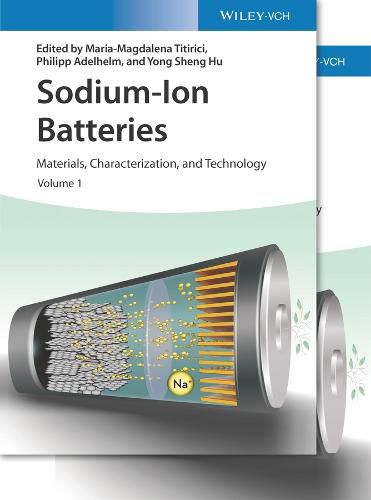Readings Newsletter
Become a Readings Member to make your shopping experience even easier.
Sign in or sign up for free!
You’re not far away from qualifying for FREE standard shipping within Australia
You’ve qualified for FREE standard shipping within Australia
The cart is loading…






Presents uparalleled coverage of Na-ion battery technology, including the most recent research and emerging applications
Na-ion battery technologies have emerged as cost-effective, environmentally friendly alternatives to Li-ion batteries, particularly for large-scale storage applications where battery size is less of a concern than in portable electronics or electric vehicles. Scientists and engineers involved in developing commercially viable Na-ion batteries need to understand the state-of-the-art in constituent materials, electrodes, and electrolytes to meet both performance metrics and economic requirements.
Sodium-Ion Batteries: Materials, Characterization, and Technology provides in-depth coverage of the material constituents, characterization, applications, upscaling, and commercialization of Na-ion batteries. Contributions by international experts discuss the development and performance of cathode and anode materials and their characterization - using methods such as NMR spectroscopy, magnetic resonance imaging (MRI), and computational studies - as well as ceramics, ionic liquids, and other solid and liquid electrolytes.
Discusses the development of battery technology based on the abundant alkali ion sodium Features a thorough introduction to Na-ion batteries and their comparison with Li-ion batteries Reviews recent research on the structure-electrochemical performance relationship and the development of new solid electrolytes Includes a timely overview of commercial perspectives, cost analysis, and safety issues of Na-ion batteries Covers emerging technologies including Na-ion capacitors, aqueous sodium batteries, and Na-S batteries
The handbook Sodium-Ion Batteries: Materials, Characterization, and Technology is an indispensable reference for researchers and development engineers, materials scientists, electrochemists, and engineering scientists in both academia and industry.
$9.00 standard shipping within Australia
FREE standard shipping within Australia for orders over $100.00
Express & International shipping calculated at checkout
Presents uparalleled coverage of Na-ion battery technology, including the most recent research and emerging applications
Na-ion battery technologies have emerged as cost-effective, environmentally friendly alternatives to Li-ion batteries, particularly for large-scale storage applications where battery size is less of a concern than in portable electronics or electric vehicles. Scientists and engineers involved in developing commercially viable Na-ion batteries need to understand the state-of-the-art in constituent materials, electrodes, and electrolytes to meet both performance metrics and economic requirements.
Sodium-Ion Batteries: Materials, Characterization, and Technology provides in-depth coverage of the material constituents, characterization, applications, upscaling, and commercialization of Na-ion batteries. Contributions by international experts discuss the development and performance of cathode and anode materials and their characterization - using methods such as NMR spectroscopy, magnetic resonance imaging (MRI), and computational studies - as well as ceramics, ionic liquids, and other solid and liquid electrolytes.
Discusses the development of battery technology based on the abundant alkali ion sodium Features a thorough introduction to Na-ion batteries and their comparison with Li-ion batteries Reviews recent research on the structure-electrochemical performance relationship and the development of new solid electrolytes Includes a timely overview of commercial perspectives, cost analysis, and safety issues of Na-ion batteries Covers emerging technologies including Na-ion capacitors, aqueous sodium batteries, and Na-S batteries
The handbook Sodium-Ion Batteries: Materials, Characterization, and Technology is an indispensable reference for researchers and development engineers, materials scientists, electrochemists, and engineering scientists in both academia and industry.